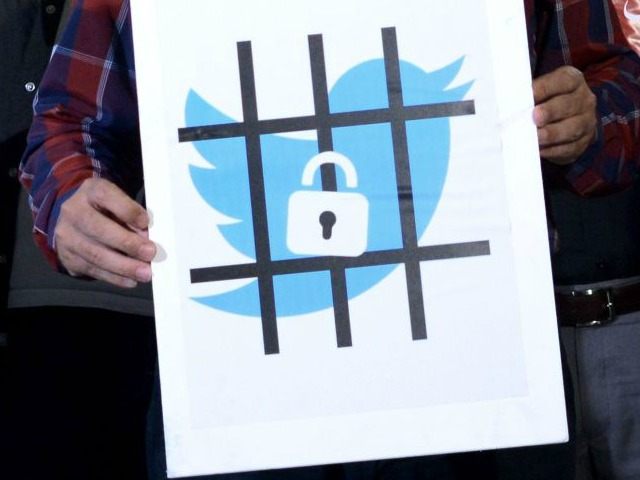In an article for the Washington Examiner last week, writer Mark Grabowski pondered the idea of whether Twitter’s routine censorship could be unconstitutional.
“Most Americans know they can speak their mind in the public square, thanks to the First Amendment. Speech on social media, however, can be censored because private companies own those cyber spaces,” wrote Grabowski on Tuesday. “But a recent Supreme Court oral argument suggests Twitter’s practice of banning controversial right-wing pundits could be deemed illegal.”
Grabowski explained how the internet is now the popular public square, and how legally it should be treated as such.
Driving the California court’s reasoning was a concern that traditional public squares — the old ‘Main Street’ — were giving way to privately-owned businesses. Consequently, the speech rights that Californians enjoyed in these public Main Street spaces would greatly diminish if a town’s center of gravity shifted to a mall and its owners were able to restrict speech because it’s on private property. In the 40 years since that landmark ruling, social media has become society’s modern day public square. Think about it: If I were in the shoes of those California students today and wanted to maximize the number of signatures I got for such a petition, I’d first put it online, and then I’d tweet it to various pro-Israel politicians, celebrities and others with a large number of followers who could easily retweet it and thereby broadcast it to millions of people.
“During the Supreme Court’s recent hearing on North Carolina’s law, justices acknowledged this shift,” Grabowski concluded.
Last year, Gizmodo reported that average internet celebrities can make $75,000 per Instagram advert, and $30,000 per commercial tweet, further complicating the implications that can come from being banished from platforms such as Twitter.
With Twitter’s routine and targeted censorship of conservatives, libertarians, and free speech activists, it is entirely plausible that livelihoods, if sufficiently linked to social media followings, could be destroyed.
“Regardless of your personal ideology, you should be worried about giant tech corporations censoring anyone,” said Joshua Lekach, CEO of the app REP, which allows users to monetize their social media accounts. “If it’s not your group being attacked, it eventually will be.”
“We rely on their tech to share stories, ideas, and news we find important. If we can’t freely share ideas then we can’t move forward,” he continued. “It’s a little weird when people use their speech (thanks to the 1st amendment) to fight the 1st amendment.”
“We are still in the infancy of a tech revolution, to normalize censorship in the name of politeness is extremely dangerous. There are tech savvy, influential people, who’ve made businesses through their social media,” concluded Lekach. “If they decide to express themselves in any *insert buzzword here* way, their livelihoods will always be under attack. It’s harder to ban influential people with followers that care about them but we are being conditioned to think that’s okay. Normalizing censorship will make it easier to accept banning the average user and no one will be there to defend them.”
If social media companies are unfairly causing financial damage to people, that too could have legal implications. While social media censorship has yet to be tested in court, there is a long history of tort law being used to protect private individuals from financial, reputational, and other forms of injury, whether they are caused deliberately or by negligence (like failing to contain overzealous or politically motivated moderators, for example).
Charlie Nash is a reporter for Breitbart Tech. You can follow him on Twitter @MrNashington or like his page at Facebook.

COMMENTS
Please let us know if you're having issues with commenting.